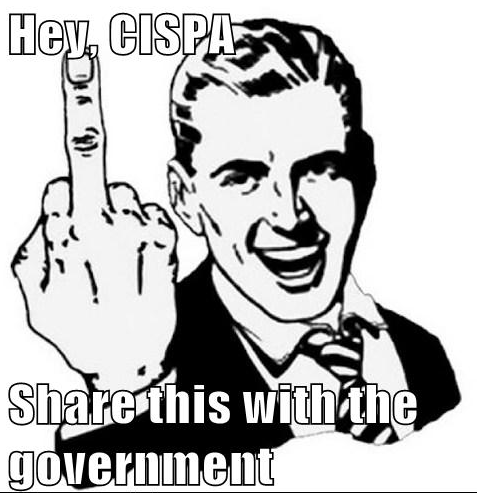CISPA IS BACK! Destroying Online Privacy
Source: rollingstone.com
Congress Is Trying to Kill Internet Privacy AgainHouse lawmakers have reintroduced a bill that civil liberties groups say would destroy the right to Internet privacy as we know it. An earlier version of the Cyber Intelligence Sharing and Protection Act, or CISPA (pdf), passed the House back in April 2012; it died quickly under threat of presidential veto and widespread protest from Internet activists. But this week, House Intelligence Committee Chairman Mike Rogers (R-Michigan) and ranking member Dutch Ruppersberger (D-Maryland) brought it back. What’s going on?
Ruppersberger argues that CISPA is necessary to fight a cyber-security threat that has expanded since last spring – alluding to recent Chinese hacking attacks on newspapers including The New York Times and Washington Post. "People ask me all the time, ’What keeps you up at night?’ And I say, ’Spicy Mexican food, weapons of mass destruction and cyber attacks,’" Ruppersberger tells Rolling Stone. "We have a serious problem. We’re trying to fix this problem."
But opponents from the American Civil Liberties Union (ACLU) to the Electronic Freedom Foundation (EFF) say that in practice, CISPA would give private companies and U.S. intelligence agencies the power to pass around Americans’ personal data with complete impunity – all in the name of "national security." "In one fell swoop, privacy laws no longer apply," Michelle Richardson, a legislative counsel for the ACLU, tells Rolling Stone.
Ruppersberger insists that he and Rogers worked hard on crafting CISPA provisions that will protect Americans from this kind of spying. "CISPA does not authorize the government to monitor your computer or read your emails, Tweets and Facebook," he says. "It’s clearly what the bill does not do."
Yet this conveniently ignores the part of CISPA which does give private companies the power to share our private emails, tweets and Facebook messages with the government – nullifying current privacy laws, which require companies to keep your private information, well, private.
Last time around, many tech companies overwhelmingly supported CISPA, from Internet service providers like Comcast and AT&T to Web giants like Google and Facebook. With corporations lining up for the right to share your private information without any threat of prosecution, Ruppersberger’s assurances are cold comfort.
As usual, the government is using national security concerns to justify the latest expansion of its powers. Rogers recently told CBS’s Bob Schieffer that he believes the nation has been too soft on cybersecurity, and information sharing is the best way forward: "The senior leadership in the intelligence community said that they think we can stop 90 percent of our problems just by sharing classified cyber threat information."
But it remains to be seen why U.S. intelligence needs our personal information to combat network breaches. Even NSA director Keith Alexander, while supporting CISPA, has acknowledged that ensuring cybersecurity "doesn’t require the government to read [Americans’] mail."
[...]
Read the full article at: rollingstone.com























